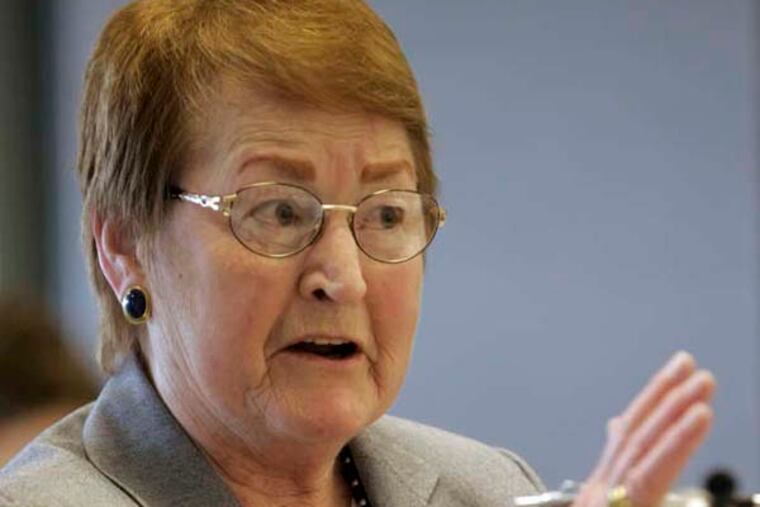Greenlee, chief of Defender Association, to retire in March
Ellen Greenlee, the longtime head of the Defender Association of Philadelphia, who began her professional life as a high school language teacher and went on to develop and expand one of the nation's most prominent public-interest law agencies, on Tuesday announced her retirement effective March 1, 2015.

Ellen Greenlee, the longtime head of the Defender Association of Philadelphia, who began her professional life as a high school language teacher and went on to develop and expand one of the nation's most prominent public-interest law agencies, on Tuesday announced her retirement effective March 1, 2015.
Greenlee has served for 40 years with the association, which provides legal representation to thousands of low-income people in Philadelphia each year. For about 25 years, she has been chief defender.
Greenlee established or expanded numerous services provided by the association, including its homicide unit, which represents defendants accused of capital crimes, and staffing of specialized courts, such as the city's drug court and mental-health courts.
"It's time to get some new blood in here," Greenlee said. "I've had a good run. This is a service that is so needed."
Greenlee, 78, joined the city-funded Defenders Association in 1974 as a volunteer, after graduating from Villanova University Law School, and was hired to its staff of lawyers six months later. She rose through the ranks and was appointed chief defender in 1990. With a staff of 500, including about 240 lawyers, Greenlee has been credited with establishing a host of programs aimed at improving legal services for poor criminal defendants.
Running the agency, an independent nonprofit group, is an enormously complex task with its lawyers attending about 400,000 hearings on behalf of clients each year.
"She's had a long tenure and the office is highly regarded," said David Rudovsky, a civil rights lawyer in Philadelphia and president of the association's board of directors.
Rudovsky said first assistant defender Charles A. Cunningham would serve as interim chief defender as the board conducts a national search for a successor.
The homicide unit has handled 1,700 cases since its establishment more than 20 years ago, and not one of its clients has been convicted of a capital crime. At the time it was established, all court-appointed lawyers for capital cases were in private practice. Philadelphia court officials asked Greenlee if her agency could begin handling such cases because of the need.
She agreed, but insisted her agency would adhere to American Bar Association staffing guidelines. Those called for at least two lawyers on each case, an investigator, and a mitigation specialist, or social worker, who would examine a defendant's personal history for factors such as child sexual abuse or parental beatings. That information would then be used to argue for leniency in a penalty phase of a trial, in the event a defendant was convicted.
Greenlee graduated from Chestnut Hill College, taught high school in Delaware County, and later went to work for what was then the SmithKline pharmaceutical company.
"I was looking for something a little bit more interesting to do and followed my husband's advice, which I don't normally do," she said, and applied to law school.
Greenlee said that as a woman lawyer, she joined the association "at the right time."
"I spent my first six years as a trial lawyer trying misdemeanor and felony cases, and at that point it was time for a woman to be a supervisor, we only had one," she said.
She was made an assistant supervisor in 1980 and was appointed to further management positions after that.
She says she stayed in public interest law "because of the importance of providing poor people with the best possible representation we can."